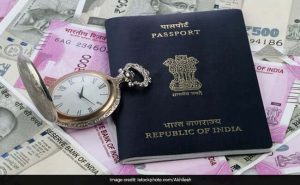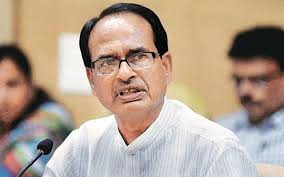Reading Time: 5 minutes
The Modi government’s move to introduce and pass the CAB in the current session has revived the anti-CAB agitation in the northeastern states and also the national capital. Trump’s impeachment trial and thumping victory of Borris Jhonson were the three issues in the media, reports Navodita. An exclusive for Different Truths.
 The media has been abuzz with lots again – impeachment trial against Donald Trump, thumping victory for Boris Johnson in parliament on Brexit, collapse of the WTO’s dispute settlement mechanism challenging the so-called post-WTO freer trade order.
The media has been abuzz with lots again – impeachment trial against Donald Trump, thumping victory for Boris Johnson in parliament on Brexit, collapse of the WTO’s dispute settlement mechanism challenging the so-called post-WTO freer trade order.
Back home, significant moves have been taken by the government vis-à-vis citizenship, which has led to a fresh round of protests in Assam and other northeastern states. The government wants to use the northeastern state to manufacture consent for a nationwide NRC (National Register of Citizens) and proposed amendments to the citizenship laws, too.
The CAB (Citizenship Amendment Bill) will be reduced to an exercise in segregating Muslims from among the ‘illegal immigrants’ from Bangladesh, Pakistan and Afghanistan as well as from among immigrants from erstwhile East Pakistan, who have acquired Indian citizenship by virtue of the Assam Accord.
The CAB (Citizenship Amendment Bill) will be reduced to an exercise in segregating Muslims from among the ‘illegal immigrants’ from Bangladesh, Pakistan and Afghanistan as well as from among immigrants from erstwhile East Pakistan, who have acquired Indian citizenship by virtue of the Assam Accord. The Modi government’s move to introduce and pass the CAB in the current session has revived the anti-CAB agitation in the northeastern states and also the national capital. Political parties and organisations across the region have taken to the streets opposing the CAB. Amit Shah assured the fourth conclave of the BJP-led North East Democratic Alliance that concerns expressed by the states in the region would be incorporated in the new Bill. However, the assurance has failed to cut much ice, and protests seeking the withdrawal of the CAB are growing.
This entire episode also raises concerns about the rise of the Right and India’s lurch to Right politics in the days to come. The trend is global as indicated by the victory of the Conservatives in British elections and as proved by the dilution of Trump’s trial in the Senate. Can we then say- antiglobalisation is getting globalised? Are we redefining what nationalism means on grounds of culture, religion and ethnicity? Is this a positive trend or is this an inevitable change all liberals across the world should reconcile with?
When one looks at the maze of globalisation, one finds that the interpretative context of globalisation has been the fast changing world events in the last one and half decades

When one looks at the maze of globalisation, one finds that the interpretative context of globalisation has been the fast changing world events in the last one and half decades pointing towards the globe as an inclusive single place. Ronald Robertson traces the historical-temporal path of globalization to the present complex structure of global system through five phases:
- The phase of dissolution of Christendom and rise of nationalism in Europe (1400-1750)
- The phase of nation-state and the initial phase of internationalism and universalism in Europe (1750-1875)
- The take-off phase of conceptualisation of the world as a single international society, global society, first world war and transnational migration and inclusion of non-Europeans in the international club of nation-states (1875-1925)
- The struggle for hegemony phase of Cold War, emergence of third world (1925-1969),which also saw various independent movements in Afro-Asia block
- The uncertainty phase of space exploration, mass media space, rise of technology (1969-1992)
After 1992, there has been in India a trend towards rapid globalisation almost becoming synonymous with ‘homogenisation of cultures’ in which the West dominated, which gave rise to cultures and structures that helped shape India as a haven for economic privatisation and exposure to unregulated capital. A Marxist position sees imperialism as instrumental to the present state of globalisation. The expansion of the boundaries of the capitalist world economy has ultimately resulted in the shift of capitalist world economy from its primary location in Europe to the entire globe. It has had a major sociocultural impact on our lives. This is where Marshall McLuhan’s ‘global village’ comes in, however, in a very top-down sort of way where the Western culture dominates and the Eastern cultures are marginalized. In fact, globalisation over the last few years has not yielded many beneficial results for the developing economies or even the developed economies as its impacts led to unequal and uneven development in different parts of the world. That is one major reason why countries are now moving towards ‘protectionism’ and securing closed borders for trade and cultural exchanges. As technology gains momentum, there have even been talks of data privacy and control of data leakage over network systems globally.
Does then nationalism get a new definition in the wake of NRC and CAA (Citizenship Amendment Act)? Dating back to history, in South Asia nationalism took roots during the struggle against the colonial rulers.
Does then nationalism get a new definition in the wake of NRC and CAA (Citizenship Amendment Act)? Dating back to history, in South Asia nationalism took roots

during the struggle against the colonial rulers. The regional and ethno-cultural issues have been significant in South Asia. Nationalism has obtained different shapes and expressions in South Asian countries- such as secular nationalism, lingua-cultural nationalism, religious nationalism, linguistic nationalism, aggressive nationalism, etc. Nationalism has succeeded in attaining unity in diversity for countries like India with a multicultural and multiethnic population but has also proved to be a divisive force as can be seen in the case of CAA. In this context, one would argue that nationalism has relevance as a tool of political expressions.
What’s changing in India is that earlier in India nationalism as a political ideology represented the liberal democratic and secular outlook promoting unity in diversity. This was shaped during the course of Indian national movement (which was a globalised movement of the right to self-determination) and draws inspiration and sustenance from the great historical traditions, the ideology of the leaders of nationalist movement, the constitution, democratic institutions and processes, secularism, freedom and equality, modernization and development. The new government, however, seeks to undo many such things as it believes that its ‘history of independence movement’ itself is varied and different from the one highlighted by liberals in post-independence era and even in pre-independence years. The recent Rahul Gandhi comment, “I am Rahul Gandhi, not Rahul Savarkar’ highlights the case of this ‘ideological war’ between the two political groups.
With the rise of China and the Right now in some countries, such definitions around nationalism and sovereignty are getting redefined where economic structures are undergoing a shift, too, in the wake of changing national policies of governments in various countries, developed or developing.
So far globalisation, nationalism and capitalism have dominated the world. However, with the rise of China and the Right now in some countries, such definitions around nationalism and sovereignty are getting redefined where economic structures are undergoing a shift, too, in the wake of changing national policies of governments in various countries, developed or developing. The government should exercise restraint in bringing such drastic changes as the ‘aam janata’ takes changes at a snail’s pace rather than in a humungous way.
Photo from the Internet















